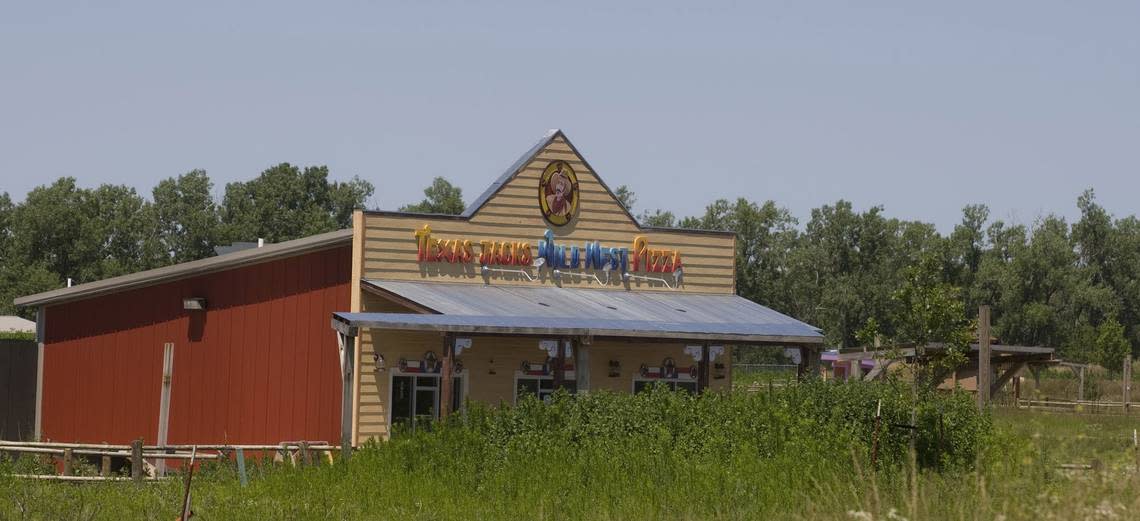Shades of Wild West World: Park City preps to give up millions in Hartman Arena deal | Opinion
Remember that time that Park City paid $3 million to help develop a theme park that closed two months later and its pieces were scattered to the wind?
Well, they’re at it again. This time, it’s the sale of the Hartman Arena.
The Park City City Council has executed a letter of intent to issue major tax breaks to help the family of real estate developer Jeff Lange buy the arena from the guy who built it, oilman and restaurateur Wink Hartman.
The Carden Circus is performing at the arena this weekend, which is appropriate, because the financial documents for the sale show this deal is cotton candy for the Langes. And there are loopholes you could drive a herd of elephants through.
The property tax breaks the Langes propose — 100% for 10 years — total somewhere between $1.3 million and $3.5 million, which either way is a heck of a lot of tax abatement to help someone buy a building that costs $3.5 million.
If the value of the tax breaks falls at the upper end of the scale, the Langes would essentially be getting the arena for free, courtesy of taxpayers of Park City, Sedgwick County, the Valley Center school district and the state of Kansas, all of which would be giving up tax revenue that the arena is currently generating.
The tax breaks are part of a state-authorized financing scheme called industrial revenue bonds. The way it’s supposed to work is a city gives a developer property tax breaks to help build or renovate a businesses that creates jobs and benefits the community. After 10 years of tax abatement, the theory goes, the property returns to the tax roll at a higher value and generates more revenue for local government than it did before.
Using that process to merely facilitate the sale of an operating business from one owner to another is almost never done, and it flies in the face of the intent of the program.
The cost-benefit analysis, required to show what the public is getting for its tax dollars, is being redone, after I questioned numbers in it that showed the Langes buying the arena for $3.5 million and getting $3.529 million back in tax breaks.
That projection was based on the arena’s current property tax appraisal value, about $10 million.
Park City estimates if the sale goes through, the tax appraisal will come down to somewhere around the $3.5 million sale price and reduce the tax-break benefit to $1.3 million over 10 years.
But that’s not how the county appraiser appraises commercial buildings, so it could still be a lot higher.
The cost-benefit study also projects that the arena will spur $5.3 million in sales and hotel-motel guest taxes over 10 years; but it doesn’t account for the fact that Park City pays the arena an annual partnership fee of $25,000, plus diverts money from the guest tax to subsidize arena events.
The 2023 budget for those payments is $158,500 and the council just added another $9,000 for the Regulators, a new indoor football team that will play at the arena this year. Assuming that level of support for the next 10 years, that’d be another $1.67 million propping up the Langes’ business.
Hartman spent about $19 million to build the 5,000-seat arena in 2009, mainly as a home for his Wichita Wild indoor football team, which he folded in 2014.
His tax abatements on the arena expired after 10 years and the sale contract between Hartman and the Langes is contingent on the Langes getting another 10 years of property tax breaks.
One factor driving Park City’s decision to subsidize the Lange bid is that if the sale doesn’t happen, Hartman might close the arena and use the building for something else, perhaps cold storage.
But the Lange’s application for tax breaks doesn’t guarantee it will stay an arena either.
On the line that asks when operations will commence, it says “continue operations as currently operating.” But it doesn’t say for how long.
Any improvements are hedged as “potential” or “possible,” and while the application claims “added programming would create additional jobs and sales tax,” another part of the documents projects only five new jobs over the next 10 years.
Finally, the analysis projects the arena will pay $400,000 a year in property tax when it comes back on the tax roll. But that projection also has to be redone, because it was predicated on the current appraisal value of $10 million, not the $3.5 million value the city is expecting after the sale.
At the lower appraised value, the taxes 10 years hence would probably be closer to $140,000 a year, if that much, because by then we’ll be talking about an arena that will be almost 25 years old.
With all the giveaways the city’s having to make to change the name from Hartman Arena to Lange Arena, it might actually make more sense for Park City to buy the arena itself. The price is a bargain and it would be the best way to guarantee that the arena will continue to do what Park City wants and needs it to do, bring people to town to eat in local restaurants and stay at local hotels.

But as I contemplate the deal that’s on the table now, I’m reminded of the words of the author Arthur C. Clarke: “Into my heart blows a cold wind from the past.”
For I remember Wild West World.
